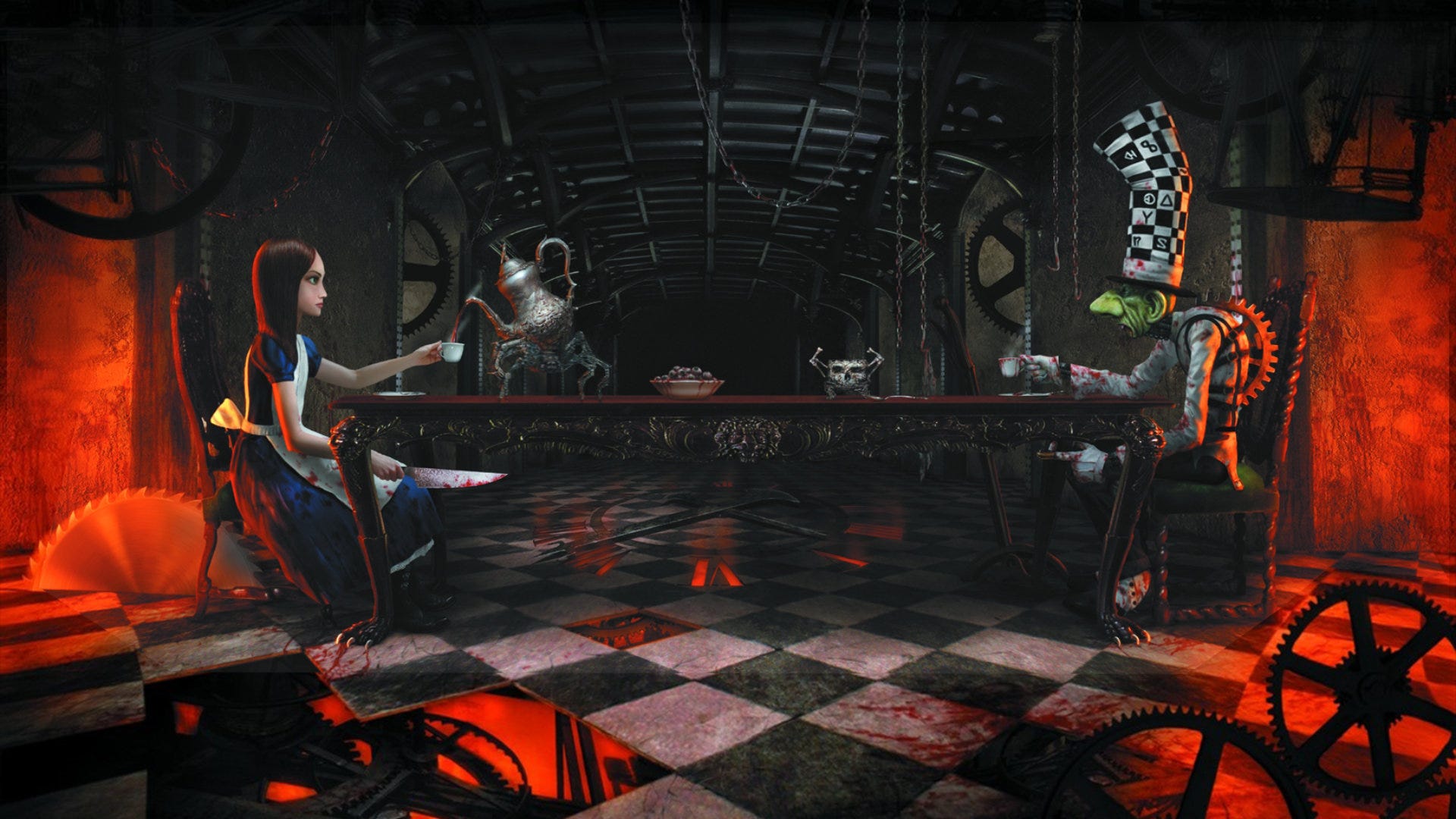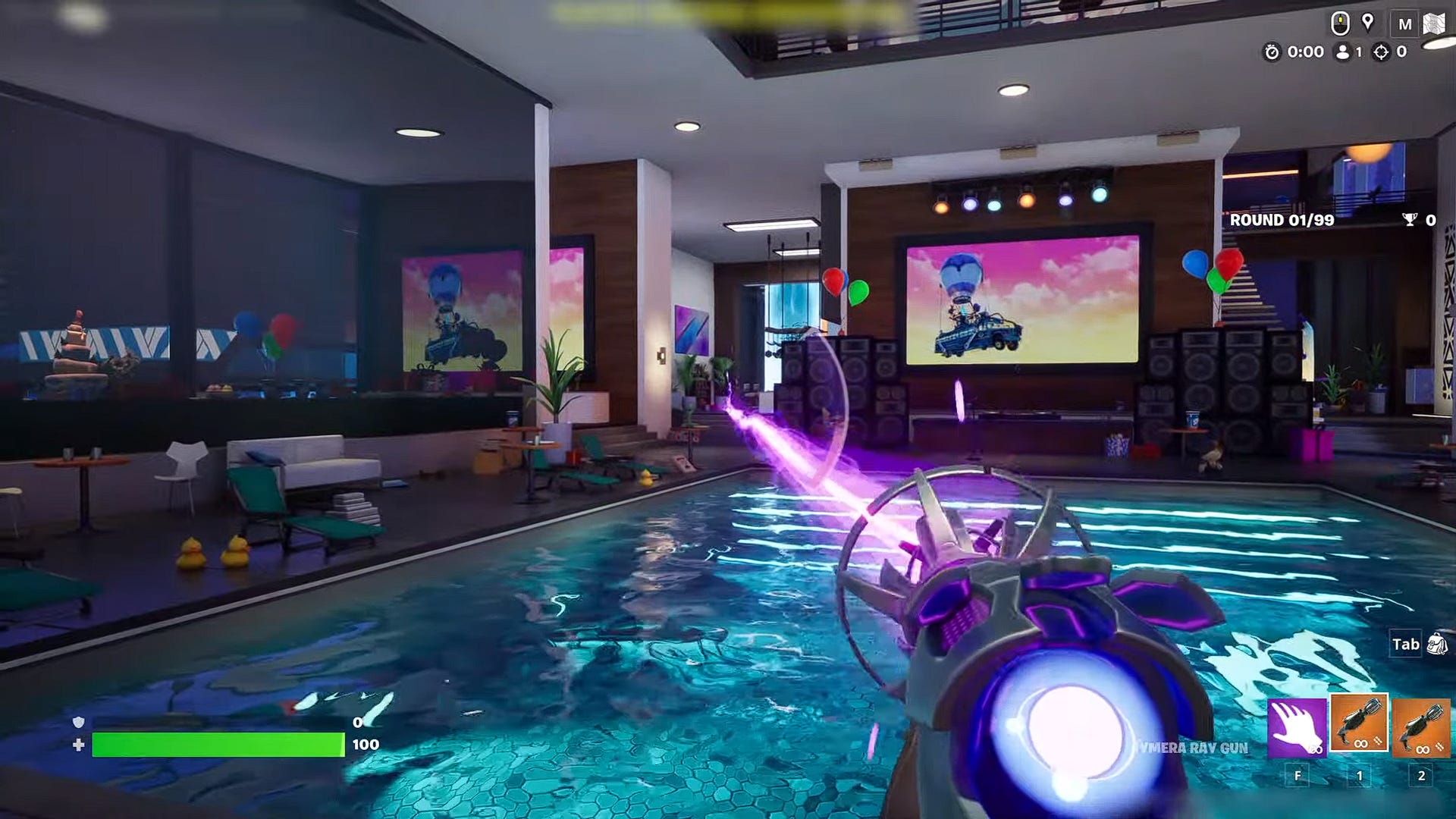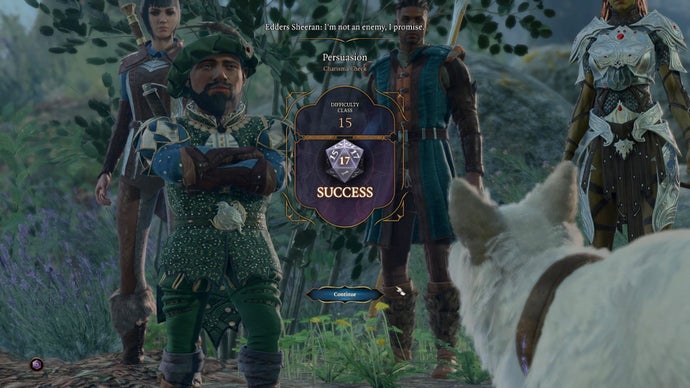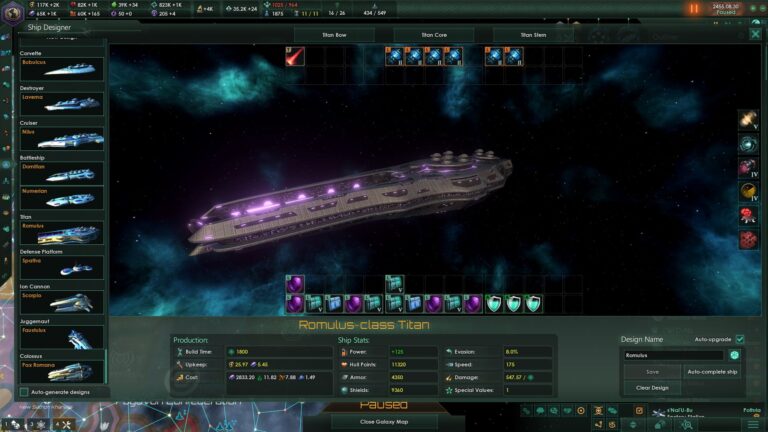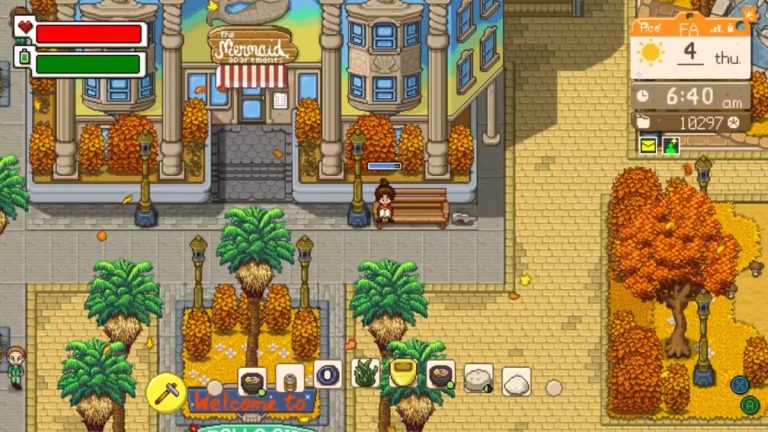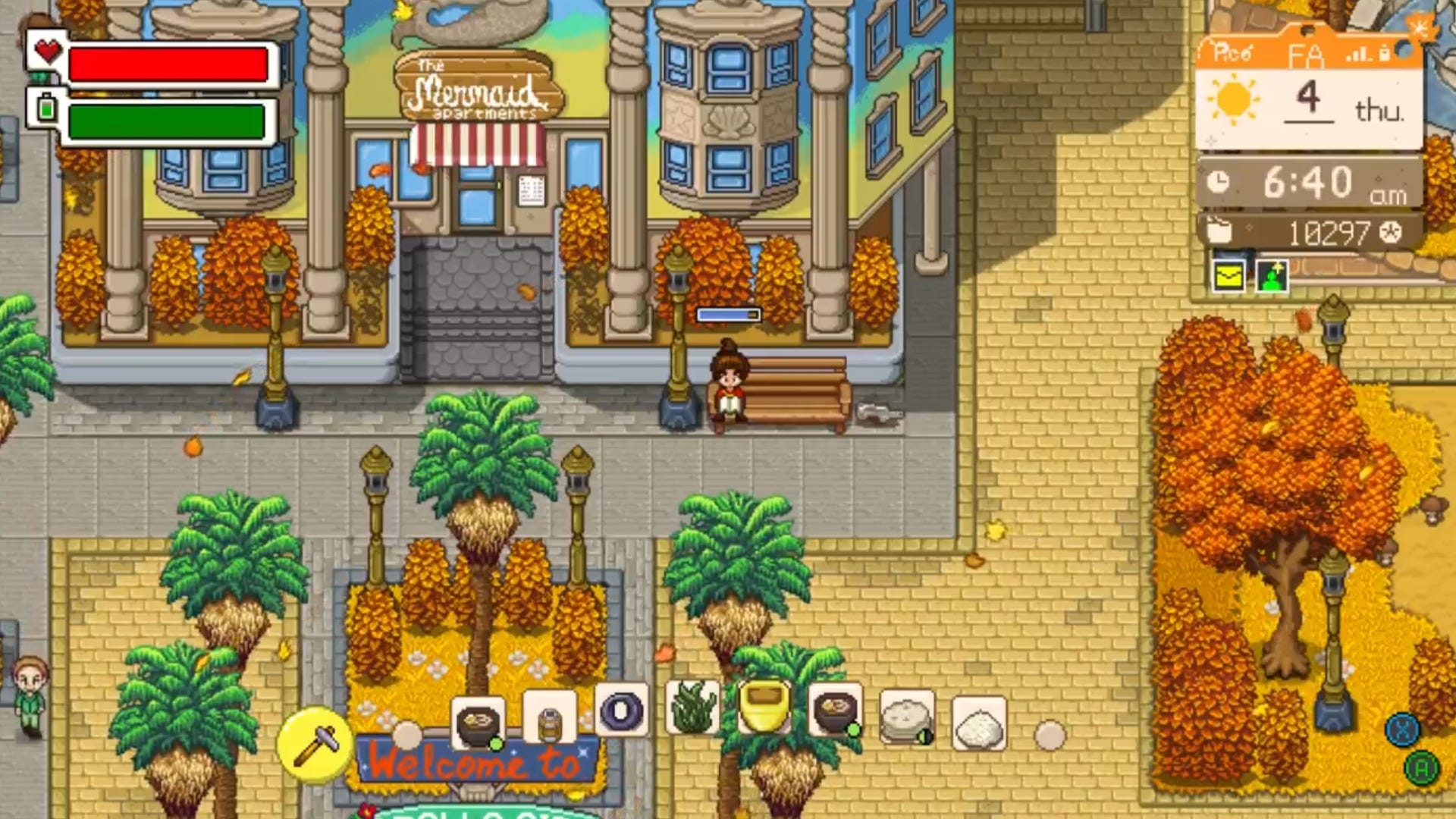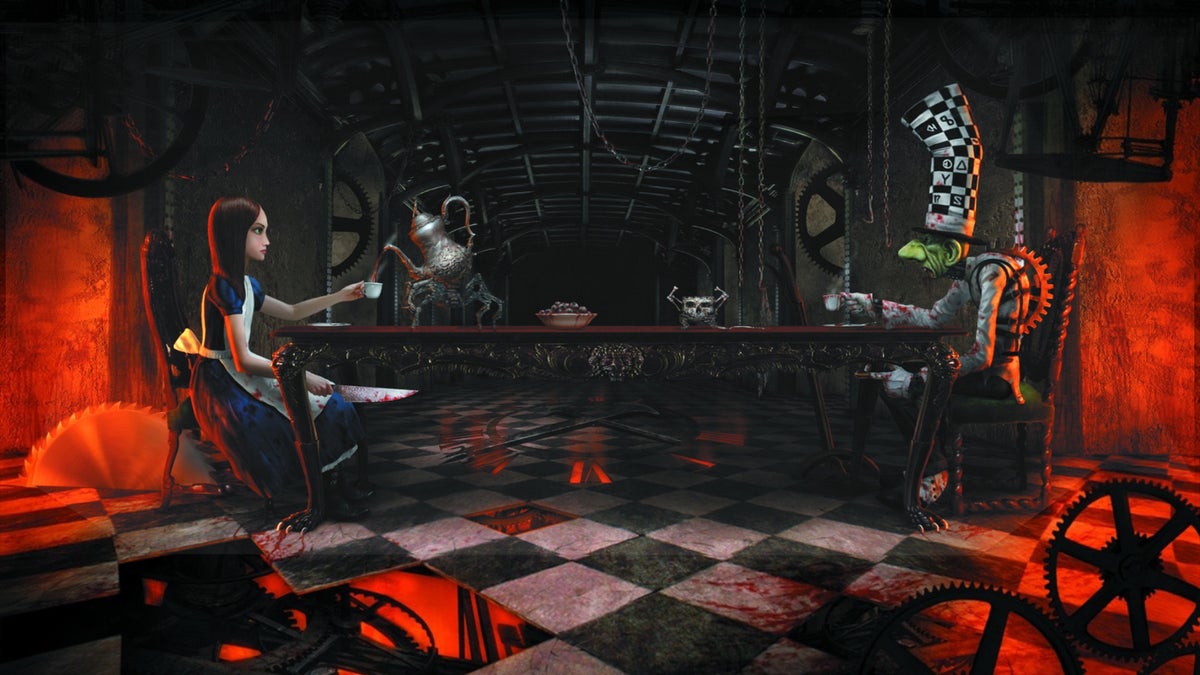
American McGee has spent the past several years trying to make Alice: Asylum, a third entry in his series of action-horror games inspired by Lewis Carroll’s Alice’s Adventures in Wonderland. That fight produced a crowdfunded 414-page design bible but came to an end earlier this year when rights-holders EA rejected the pitch, and McGee declared that he had “no other ideas or energy left to apply toward getting a new Alice game made.”
McGee reiterated similar sentiments in a new video discussing the project’s end, but he did suggest one “ray of hope” to the community. “The design bible as produced is the perfect thing to feed into an AI system to have it completely build the game that is outlined in that design bible.”
The video begins with McGee repeating more or less what he said earlier in the year. EA don’t have any intention of making a new Alice game, and McGee was “emotionally quite destroyed” by the rejection. While explaining that he has felt shame for not being able to bring the community’s energy to fruition, he mostly wants that community to move on and stop asking him questions he can’t answer.
“I do think though that there is a ray of hope for those of you out there who would like to see Alice’s story continued,” McGee says around the four minute mark. “And that is that the design bible – the complete story, the artwork, all of the chapters, the weapons, the enemies, everything that you could need to develop the new game – it all exists inside of the design bible that we produced.
“This thought is going to be controversial for some people, but mark my words, in a few years it’ll be something that makes a lot of sense for a lot of people out there. And that is, that the design bible as produced is the perfect thing to feed into an AI system to have it completely build the game that is outlined in that design bible.”
McGee offers no further suggestions as to how exactly this would work, whether via existing AI technologies or hypothetical future tools. He merely thinks AI might be one way “to go around some of the traditional barriers in the industry that currently stand in the way of bringing the project to life.”
To his credit, McGee also acknowledges that “there are a ton of legal and ethical questions that surround an idea like this,” but says that he thinks “that time would be better spent trying to solve those sorts of problems instead of continually asking me questions to which I do not have answers.”
McGee isn’t the only former Id Software bod to recently comment on AI. Last month, Id co-founder Tom Hall said that he was keen on ethical uses of AI in game development, but had worries about homogenisation.
